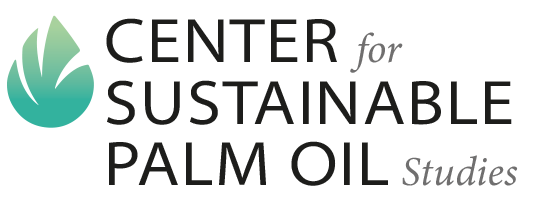
In 2020, the planet lost about4.2 million hectares of humid tropical primary forest, an area about the size of the Netherlands. Nearly half of that —according to NASA analysis — was due to food production, half of which was for producing commodity crops. In recent years, commodity crop production — beef, soybeans, and palm oil in particular — has pushed rates of forest lossto record levels. With forest loss and damage accounting for about10% of global warming, curbing deforestation will be a key in addressing the climate crisis.
Over the past decade, a growing number of companies haveannounced zero-deforestation commitments aimed at eliminating commodities produced at the expense of forests from their supply chains. As of 2018,over 400 companies have established sustainable commodity commitments and more than 70 companies have pledged to eliminate deforestation from their supply chains. However, translating these ambitions into forest conservation requires the right kind of forest mapping and monitoring systems.
“I won’t say it’s easy to make a commitment, but it’s easier to make a commitment than to follow through,” said Kemen Austin, senior policy analyst at RTI International. Devex spoke to her about how the right mapping and monitoring tools can help ensure zero-deforestation commitments and not only deliver results, but also ensure change is equitable and inclusive.
This conversation has been edited for length and clarity.
What role do multilateral zero-deforestation commitments play — both at the global and the country level — when it comes to curbing deforestation?
Recent research has shown that agriculture is one of the dominant drivers of deforestation globally. What that means on the ground is that when forest is cut down, it’s replaced by agriculture. That’s particularly true in the tropics where forests are highly biodiverse and store large quantities of carbon — so we see tackling this issue as key to preventing a global climate and biodiversity crisis.
It’s also particularly important in some key countries where industrial agriculture is a dominant driver of loss. Every country has their own, unique profile of what’s causing deforestation depending on a lot of different factors related to their land, resource base, domestic policies, global market pressures, and their comparative advantage in production. Some countries have a larger proportion of their deforestation driven by export commodities. So for those countries in particular, zero-deforestation commitments are going to be really important.
“It’s important that the public sector is creating a supporting framework and infrastructure to help zero-deforestation commitments happen in an inclusive and equitable way.”— Kemen Austin, senior policy analyst, RTI International
Zero-deforestation commitments came out as a response to this growing understanding that commodity production was driving deforestation. So companies across the supply chain — from producers to consumer goods companies and even consumers themselves — started to recognize that the way we produce food and where we buy it from has a really important impact. These commitments are seen as a potentially very promising intervention for counteracting deforestation.
Can you tell us more about Guatemala’s zero-deforestation commitments targeting palm oil? What are the key milestones of these commitments?
The palm oil trade association and some palm oil businesses in Guatemala recognized that developing a zero-deforestation plan was going to be a critical component of their competitiveness in the region. They saw this early on as consumer goods companies and downstream purchasers of palm oil were making their own zero-deforestation commitments. So there’s a regional race to the top in terms of different countries in Latin America making various forms of deforestation commitments in order to attract investment and secure market share with buyers. That is going to put pressure on producers and the palm oil association recognized the importance of these commitments and goals.
Of course, it’s not just about making the commitment, but how they actually go about achieving it. Some of the key things that [the palm oil trade association] have been working on is developing an understanding of historical trends in deforestation and GHG [greenhouse gas] emissions in their areas of operation, and designing monitoring systems to track deforestation — and then planning for future expansion to find where that can happen without impacting forests.
Why are monitoring and reporting systems so crucial for translating high-level commitments into action?
Monitoring systems are really crucial for demonstrating action and progress towards meeting those goals. They can also improve effectiveness — they are not just a stick to make sure that companies are complying, but rather they help companies adaptively manage their production, processes, or their purchasing behavior so that they are improving. And you can’t manage what you can’t measure.
Monitoring can inform decision making across the supply chain. Purchasing companies need to know who to buy from, and what to buy from them — so they need that information about which producers are making good on their commitments. And then producers also want to demonstrate that they are complying with these zero-deforestation standards so they can gain market access and sell on to those consumers.
There’s a broad range of information that’s important to track. It’s not just asking, “did deforestation happen in the area of production?” but also, “did companies change their behavior to purchase from more environmentally progressive companies?” We’re not directly involved with developing new mapping and monitoring tools, but we are helping companies, trade associations, and countries understand the landscape of these various tools that are emerging — and what works in their geographic and commodity context.
What’s the role of the public sector in ensuring zero-deforestation commitments lead to sustainable land use?
Consumers can do their part, producers and supply chain actors can do their part, but it’s important that the public sector is creating a supporting framework and infrastructure to help zero-deforestation commitments happen in an inclusive and equitable way.
For example, in the case of Guatemala, we are looking at the link between zero-deforestation commitments made by the private sector and public sector commitments to reduce [greenhouse gas] emissions and deforestation at a national scale, not just in certain types of supply chains. So thinking about what that enabling environment looks like and what the public sector can do to support that. One of the key pieces is around smallholder inclusion — that’s a key area where the public sector can [give] support. Smallholders face proportionally higher transaction costs in terms of monitoring and supply chain access — so how can the public sector support their inclusion in these zero-deforestation supply chains?
Why is there a need to shift perspectives to enable greater participation of smallholder farmers in zero-deforestation supply chains?
We won’t be able to prevent deforestation without including smallholder farmers. They’re a key part of the overarching drivers of deforestation. In Indonesia, for example, 40% of palm oil is produced by smallholder farmers, so we can’t prevent palm oil driven deforestation without including them and bringing them to the table. Then the question is how do we do that, why is that difficult and how can we overcome those obstacles?
One option is to reframe the perspective of these commitments from focusing on individual producers towards aggregate communities and landscapes so that we’re trying to address this problem not just on a farm-by-farm basis — which is inefficient and costly — but rather looking at entire communities and landscapes, and trying to build tools that support everyone to achieve environmental and social sustainability.
By Devex Partnerships
Original link: https://www.devex.com/news/sponsored/q-a-ensuring-zero-deforestation-commitments-lead-to-inclusive-action-102195


